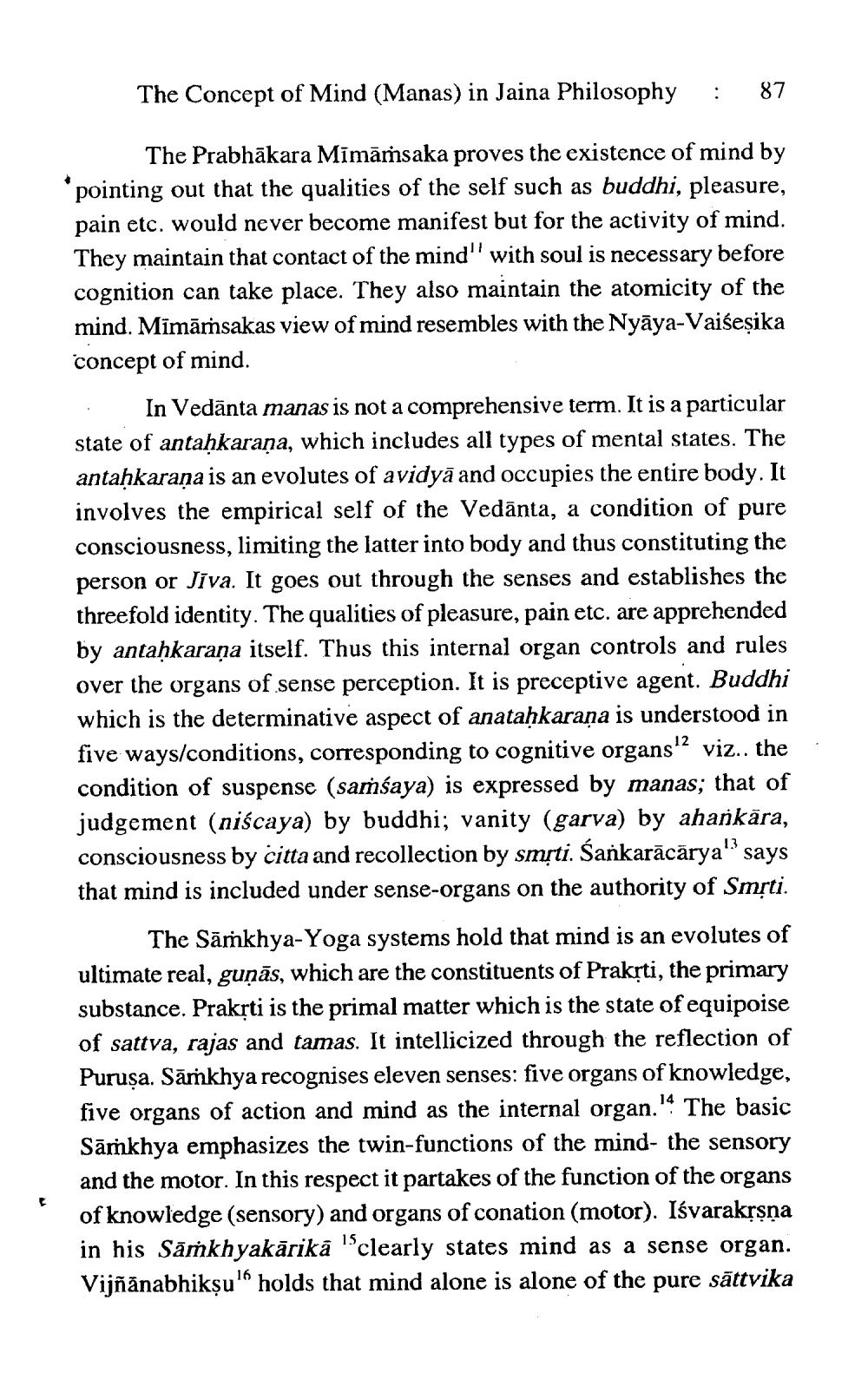________________
t
The Concept of Mind (Manas) in Jaina Philosophy : 87
The Prabhakara Mīmāṁsaka proves the existence of mind by 'pointing out that the qualities of the self such as buddhi, pleasure, pain etc. would never become manifest but for the activity of mind. They maintain that contact of the mind'' with soul is necessary before cognition can take place. They also maintain the atomicity of the mind. Mīmāmsakas view of mind resembles with the Nyāya-Vaiseṣika concept of mind.
In Vedanta manas is not a comprehensive term. It is a particular state of antaḥkaraṇa, which includes all types of mental states. The antaḥkarana is an evolutes of avidya and occupies the entire body. It involves the empirical self of the Vedanta, a condition of pure consciousness, limiting the latter into body and thus constituting the person or Jiva. It goes out through the senses and establishes the threefold identity. The qualities of pleasure, pain etc. are apprehended by antahkaraṇa itself. Thus this internal organ controls and rules over the organs of sense perception. It is preceptive agent. Buddhi which is the determinative aspect of anataḥkarana is understood in five ways/conditions, corresponding to cognitive organs12 viz.. the condition of suspense (samsaya) is expressed by manas; that of judgement (niścaya) by buddhi; vanity (garva) by ahankära, consciousness by citta and recollection by smrti. Śankarācārya13 says that mind is included under sense-organs on the authority of Smrti.
13
The Samkhya-Yoga systems hold that mind is an evolutes of ultimate real, guņās, which are the constituents of Prakṛti, the primary substance. Prakṛti is the primal matter which is the state of equipoise of sattva, rajas and tamas. It intellicized through the reflection of Purusa. Samkhya recognises eleven senses: five organs of knowledge, five organs of action and mind as the internal organ.' The basic Samkhya emphasizes the twin-functions of the mind- the sensory and the motor. In this respect it partakes of the function of the organs of knowledge (sensory) and organs of conation (motor). Iśvarakṛṣṇa in his Samkhyakārikā "clearly states mind as a sense organ. Vijñānabhikṣu' holds that mind alone is alone of the pure sättvika
16




